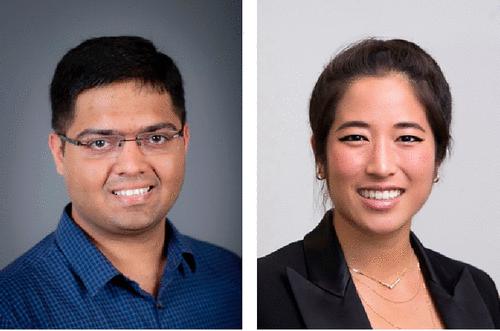Our official English website, www.x-mol.net, welcomes your
feedback! (Note: you will need to create a separate account there.)
Announcing the 2023 ACS Nano Lectureship and ACS Nano Impact Laureates
ACS Nano ( IF 15.8 ) Pub Date : 2023-05-18 , DOI: 10.1021/acsnano.3c04327 Xiaodong Chen
ACS Nano ( IF 15.8 ) Pub Date : 2023-05-18 , DOI: 10.1021/acsnano.3c04327 Xiaodong Chen

|
In our previous editorials, (1,2) we underscored ACS Nano’s dedication to nurturing talent and promoting diversity among early career nanoscientists worldwide. The ACS Nano Lectureship Award embodies this commitment, recognizing two young investigators who have made substantial impacts in their respective fields. Today, we are excited to announce the 2023 laureates of the ACS Nano Lectureship. The competition was intense, with numerous deserving candidates. Our selection committee was astounded by the groundbreaking work of our laureates and other exceptional nominees. We are proud to present the ACS Nano Lectureship to Prof. Deep Jariwala from the University of Pennsylvania, USA, and Dr. Nako Nakatsuka from ETH Zürich, Switzerland (Figure 1). Figure 1. Our 2023 ACS Nano Lectureship Laureates are Prof. Deep Jariwala of the University of Pennsylvania (left) and Dr. Nako Nakatsuka of ETH Zürich (right). Image credits: Deep Jariwala and Nako Nakatsuka, respectively. Prof. Deep Jariwala, an Assistant Professor at the University of Pennsylvania, is a trailblazer in the field of solid-state optoelectronics and low-dimensional materials. His work focuses on the integration of nanostructured materials and advanced spectroscopic techniques to better understand charge and energy transport in contemporary semiconductor optoelectronics. Dr. Nako Nakatsuka, a Senior Scientist at the Laboratory of Biosensors and Bioelectronics at ETH Zürich, focuses on deciphering the molecular interactions of DNA-based recognition elements called aptamers, which capture small-molecule targets with high specificity and selectivity. By investigating and harnessing aptamer–target interactions, she is enabling the design of next-generation nanotools for applications such as biosensing, clinical diagnostics, and drug discovery. We are also delighted to recognize the finalists for the ACS Nano Lectureship, listed alphabetically: Cesar De La Fuente from the University of Pennsylvania, João Conde from Universidade Nova de Lisboa, Junsuk Rho from Pohang University of Science and Technology, Wei Tao from Harvard Medical School, and Wenyan Yin from the Chinese Academy of Sciences. Their exceptional contributions to the field deserve recognition. The ACS Nano Impact Award aims to honor a team of authors for their significant contributions to a research work published in ACS Nano during the two calendar years immediately preceding the award year. It is our pleasure to announce that the inaugural ACS Nano Impact Award recipients, a team led by Prof. Jingyu Sun and Prof Guifu Zou from Soochow University, China (Figure 2). They are recognized for their influential research work on 3D-printed Zn-ion hybrid capacitor enabled by Ti3C2 MXene ink, (3) with Zhaodi Fan sharing the honor as the first author. Their research has the potential to revolutionize energy storage, offering significant advancements in the fields of nanoscience and nanotechnology. Figure 2. Inaugural 2023 ACS Nano Impact Award was awarded to the team led by Profs. Jingyu Sun and Guifu Zou of Soochow University, China. Image credit: Jingyu Sun.
更新日期:2023-05-18































 京公网安备 11010802027423号
京公网安备 11010802027423号